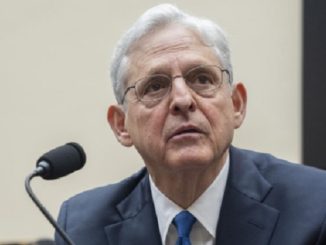
President Obama will have one last chance to force Judge Merrick Garland onto the U.S. Supreme Court on Tuesday – but it’s a legal gamble and one that has so many pitfalls that even those who say he could get away with it believe it isn’t worth the fight.
Mr. Obama’s moment will come just before noon, in the five minutes that the Senate gavels the 114th Congress out of session and the time the 115th Congress begins.
In those few moments the Senate will go into what’s known as an “intersession recess,” creating one golden moment when the president could test his recess-appointment powers by sending Judge Garland to the high court.
A smattering of activists has asked him to give it a try, but Mr. Obama has given no indication that he’s thinking about it. The White House didn’t respond to a request for comment for this story.
The move would be a legal gamble under the high court’s last ruling in 2014 on recess appointments. That 9-0 decision overturned a handful of Mr. Obama’s early 2012 picks, saying the Senate was actually in session when the president acted, so he couldn’t use his powers.
That ruling also said, however, that there’s a difference between appointments made during the annual yearlong session of Congress, dubbed “intrasession,” which Mr. Obama used in 2012, and picks made at the end of the year, after Congress adjourns, which are known as “intersession.”
William G. Ross, a law professor at Samford University in Birmingham, Alabama, said Mr. Obama would have the power to elevate Judge Garland. But he said it would be “politically unwise and damaging to the prestige of the court.”
“It would exacerbate acute political tensions that have roiled the transition process and promise turbulence from the very start of the Trump administration, and it would contribute to the growing public perception that the court is unduly political,” Mr. Ross said.
President Teddy Roosevelt was perhaps the most “aggressive” practitioner of the intersession gambit, using what The New York Times in 1903 dubbed the “infinitesimal recess” – the split second between the end of one session and the beginning of another – to appoint 168 officers.
Justice Stephen G. Breyer, writing the controlling opinion in that 2014 case, acknowledged Roosevelt’s move, though he called it an anomaly.
He said there’s a general presumption that recesses need to be at least 10 days for a president to flex his recess powers, though he left open the chance for an emergency.
Some scholars say the 10-day rule in his opinion is “dicta,” or nonbinding verbiage that doesn’t constrain the courts. Activists suggest Judge Garland could test the boundaries of unusual circumstances that Justice Breyer left open.
The consensus, though, is that Mr. Obama would be making a mistake to test it that theory.
“I think it’s fair to use the word stretch. I don’t know why he would try this. It would backfire,” said Louis Fisher, a scholar in residence at the Constitution Project who served for decades as Congress’ top expert on separation-of-powers issues.
He said Mr. Obama’s 9-0 loss in the 2014 case should still be stinging someone who earned his law degree from Harvard University and taught constitutional law at the University of Chicago.
“Does he want to go down that road again?” Mr. Fisher said.
Perhaps most problematic for Mr. Obama is that recess appointments have a shelf life. Even if he succeeds in putting Judge Garland on the bench, the appointment would expire at the close of 2017 – and could end even earlier if the Senate confirms a full-fledged replacement named by Mr. Trump.
Worse yet for Mr. Obama, Judge Garland would lose his seat on the U.S. Court of Appeals for the D.C. Circuit – oftentimes dubbed the second-most powerful court in the country. That means the president would be trading a lifetime of Judge Garland for less than a year of Justice Garland.
“Since Garland could serve only a year, he presumably would accomplish little and his service would be clouded by the strange and controversial circumstances of his appointment,” said Mr. Ross, the law professor.
He said Mr. Obama might try instead to fill some of the five dozen other empty federal court judgeships that are vacant. They too would only be limited to a year’s tenure as recess appointments, but Mr. Ross said it’s possible the Senate might vote to confirm at least some of them to lifetime tenure.
By: Stephen Dinan
Source: Washington Times via: RawStory





Be the first to comment